Common Turbo Engine Problems
Turbocharged engines have better performance and fuel economy, but can also face common problems like turbo failure and turbocharger difficulties. To sell your van with turbo engine problems, contact We Buy Many Vans. Enter your registration on our website for a quote, even if the engine has issues.
Common Van Faults: Hey there, fellow van owners! Are you familiar with turbo engine problems? If not, don’t worry – we’ve got you covered.
In this article, we’ll be discussing the basics of turbo engine problems and how they can affect your van’s performance.
Turbo engines have become increasingly popular in recent years due to their ability to provide better fuel efficiency and more power.
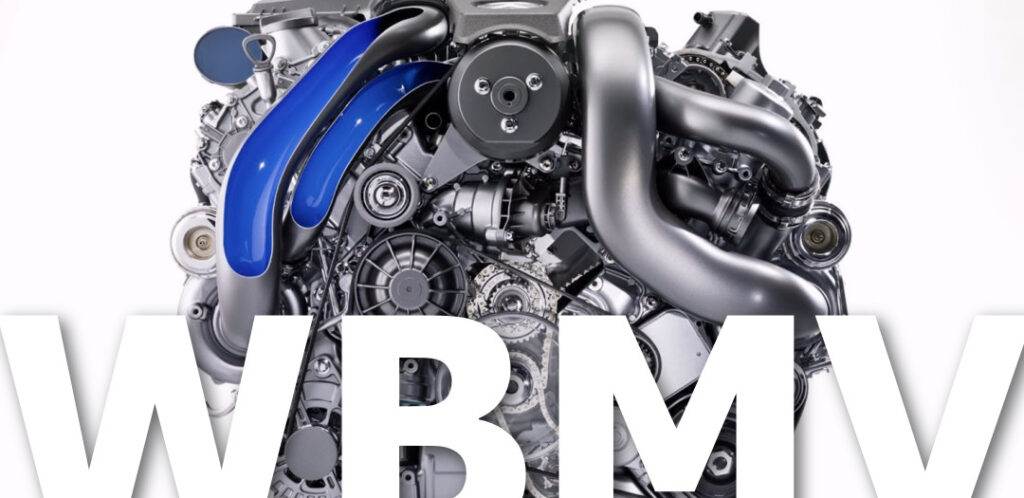
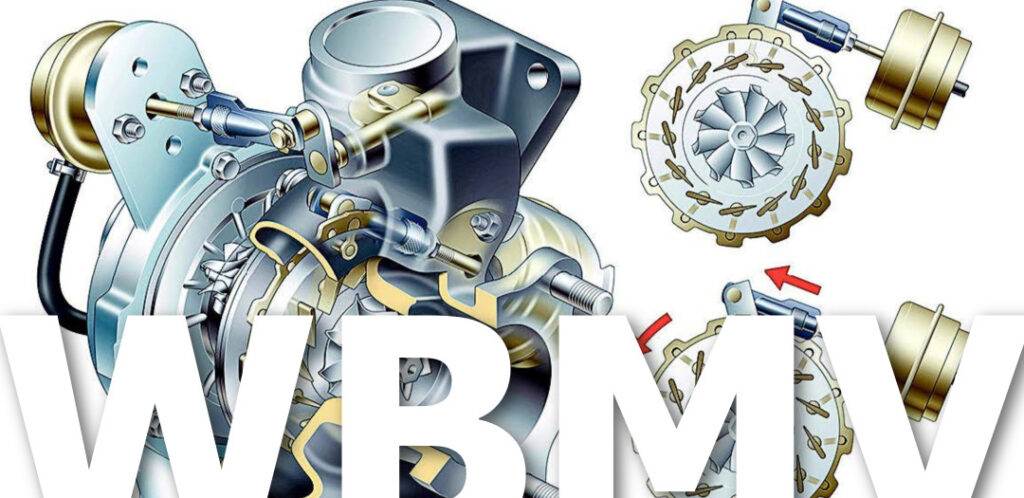
However, like any other type of engine, they’re not immune to issues.
Understanding these problems is crucial for maintaining the health of your van and avoiding costly repairs down the line.
So sit back, grab a cup of coffee (or tea!), and let’s dive into the world of turbo engine problems together.
Understanding Turbochargers And Their Role In Engine Performance
Turbochargers have become a popular addition to many modern engines because they can significantly increase the performance of the engine. The turbocharger is essentially a compressor that increases the amount of air entering the engine, which in turn creates more power. This extra power can be especially helpful for vehicles that need quick acceleration or towing capabilities.
However, with great power comes great responsibility. Turbochargers are not invincible and can fail over time due to a variety of causes. Common reasons for turbo failure include worn-out bearings, oil contamination, or excessive exhaust temperatures.
When a turbo fails, it can lead to serious engine problems such as reduced efficiency, loss of power, and even complete engine failure.
To prevent turbo failure and other engine problems, it’s important to take care of your vehicle with regular maintenance and inspections. This includes checking for leaks in the exhaust system and ensuring proper oil levels in the engine.
By staying on top of these crucial tasks, you can keep your turbocharger running smoothly and avoid costly repairs down the line.
Common Symptoms Of Turbo Engine Problems
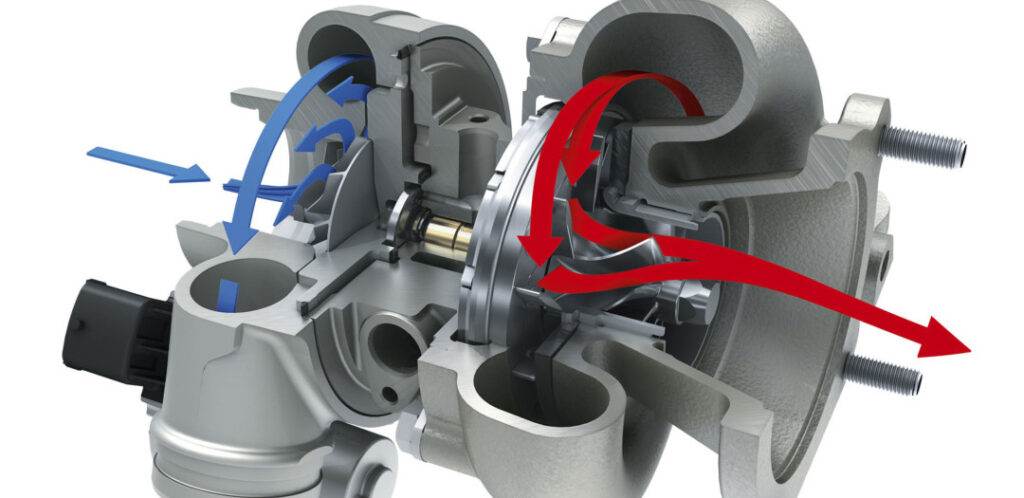
Turbo engines offer drivers the ability to achieve high performance and fuel efficiency all in one. However, with these added benefits come some common turbo engine problems that every driver should be aware of.
If left unaddressed, these issues can cause major damage to your vehicle’s engine and potentially lead to costly repairs.
One of the most common turbocharger problems is failure symptoms. These symptoms include a loss of power, decreased acceleration, and poor fuel economy.
If you notice any of these signs while driving, it may be time to have your turbocharger inspected.
One other symptom that is often overlooked is black smoke coming from the exhaust pipe. This could indicate a blown turbo, which can cause serious damage to your car’s or van’s engine.
Turbo diagnostics are essential for identifying the root cause of turbo problems. Some common causes of turbo failures include oil starvation or contamination, excessive heat buildup, or foreign object damage.
To prevent further damage to your vehicle’s engine, it’s crucial to have regular maintenance checkups done by certified technicians who specialize in turbo engines.
In summary, understanding the common symptoms and causes of turbo engine problems can help you avoid costly repairs down the road.
Regularly scheduling routine maintenance will ensure that any potentially harmful issues are detected early on and addressed promptly. So if you suspect that your van is experiencing any issues related to its turbos, don’t hesitate to seek professional assistance from certified technicians right away!
Causes Of Turbo Engine Problems
After learning about the common symptoms of turbo engine problems in the previous section, it’s important to understand the causes behind these issues. Identifying the root cause can help prevent future occurrences and save you from costly repairs. Turbo faults are often caused by a combination of factors such as improper maintenance, driving habits, and manufacturer defects.
One of the most common turbo problems is a blown turbo, which occurs when there is an excessive amount of pressure or heat buildup in the unit. Failure symptoms include smoke coming from the exhaust, reduced engine power, or unusual noises coming from under the hood. When faced with these indicators, it’s crucial to address them immediately through proper turbo diagnostics and repair.
Causes of turbo failure can vary greatly depending on several factors such as how frequently you drive your vehicle and what type of terrain you typically navigate. Some common causes include dirty air filters, oil contamination, overworking your engine, or neglecting regular maintenance intervals.
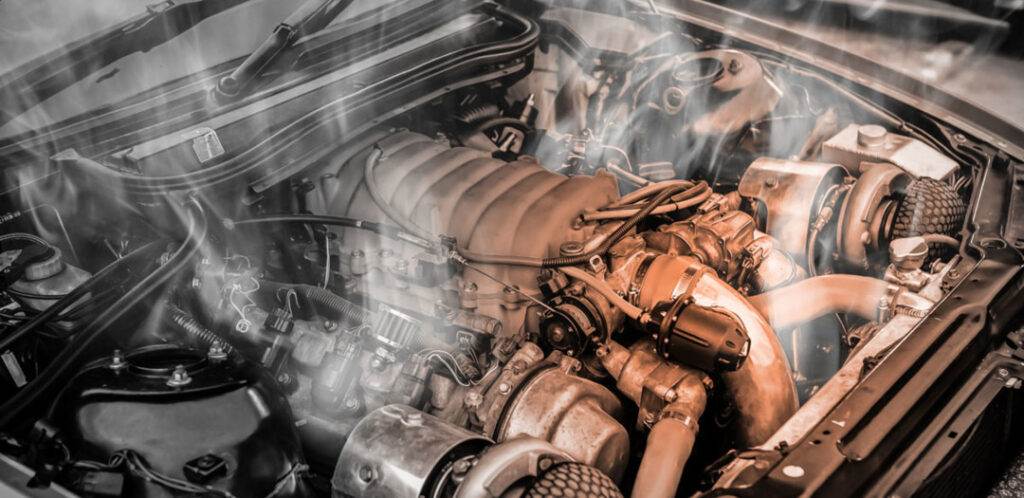
By staying vigilant with upkeep and recognizing warning signs early on, you can avoid costly engine failure down the road.
- Regularly check your oil levels to ensure they are at optimal levels.
- Avoid driving aggressively or pushing your vehicle beyond its limitations.
- Schedule routine inspections with a certified mechanic to identify any potential issues before they escalate.
- Use high-quality lubricants and fuel additives that can help reduce wear and tear on your engine.
- Keep your air intake system clean and free from debris to prevent clogs that could damage your turbocharger.
By understanding common turbo problems and their underlying causes, you can take proactive measures to protect your vehicle’s health and longevity. Don’t let a blown turbo or other engine issues catch you off guard – stay informed and prioritize consistent maintenance for optimal performance.
Turbo Engine Maintenance Tips
To keep your turbo engine running smoothly, there are several maintenance tips to follow. Regularly changing the oil and air filter is essential, as dirty oil and clogged filters can damage the turbocharger.
Let your engine cool down before shutting it off to prevent oil coking and to extend the life of your turbo. Additionally, avoid revving your engine too high when it’s cold, as this can cause unnecessary stress on the turbo. Following these simple tips can help you maintain the health of your turbo engine for longer.
Regular Checks
If you own a turbocharged engine, regular checks are crucial to maintain its performance and prevent potential problems. Turbo problems can cause damage to your vehicle that can be expensive to repair. One of the most common issues is oil leaking from the turbocharger, which can lead to engine malfunction and bearing failure. This is why it’s important to pay attention to any changes in your vehicle’s performance or check engine light.
To avoid turbocharger failure, make sure you change the oil and filter regularly. The oil is essential for lubricating the turbocharger’s bearings, and without it, they will wear out quickly. Additionally, clean air filters ensure that dirt and debris do not enter the turbocharger and cause damage.
Always remember that prevention is better than cure when it comes to maintaining your vehicle’s turbo system.
In conclusion, regular checks on your turbocharged engine are necessary for ensuring its longevity and preventing potential problems that may arise. Keep an eye out for signs of trouble such as oil leaks, unusual noises or smoke coming from the exhaust pipe. By doing so, you’ll avoid costly repairs down the road and enjoy maximum performance from your vehicle for years to come!
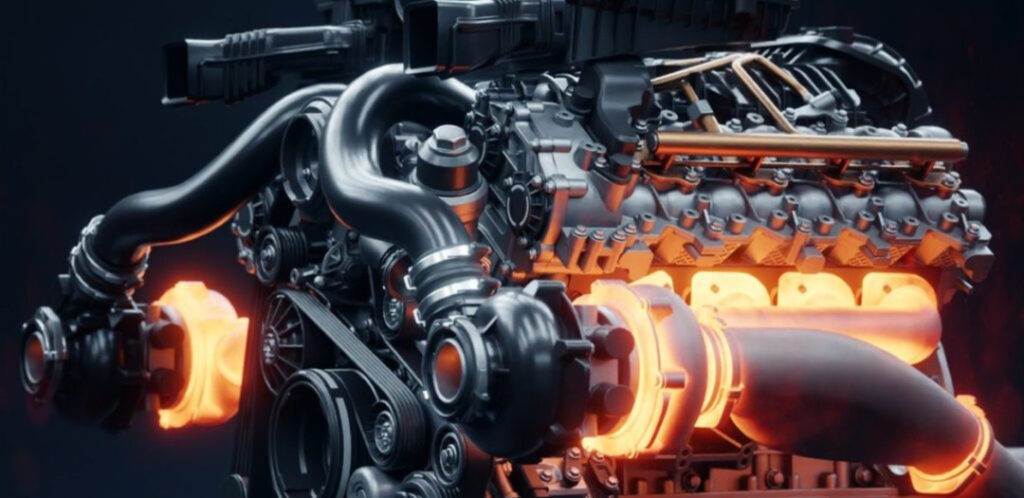
Oil Changes
As previously mentioned, regular checks are crucial to maintain the performance of your turbocharged engine. One important aspect of these checks is ensuring that you change your engine oil regularly.
Engine oil is essential for lubricating the turbocharger’s bearings, which can wear out quickly without it. As a result, failure symptoms such as unusual noises, smoke coming from the exhaust pipe, and other common turbo problems can occur.
Oil changes are also critical in preventing oil leaking from the turbocharger. When the engine oil becomes old or contaminated with debris, it can cause damage to other parts of the engine, including the turbocharger. By changing your engine oil at regular intervals, you can reduce the likelihood of oil leaks and other causes of turbo failure.
If you’re unsure about how often to change your engine oil or if you suspect any turbo faults, it’s best to consult a professional mechanic who specializes in turbo diagnostics. They can help identify any issues with your engine and recommend necessary repairs or maintenance tasks to avoid costly repairs down the road.
Remember that taking preventive measures now will ensure maximum performance from your vehicle for years to come!
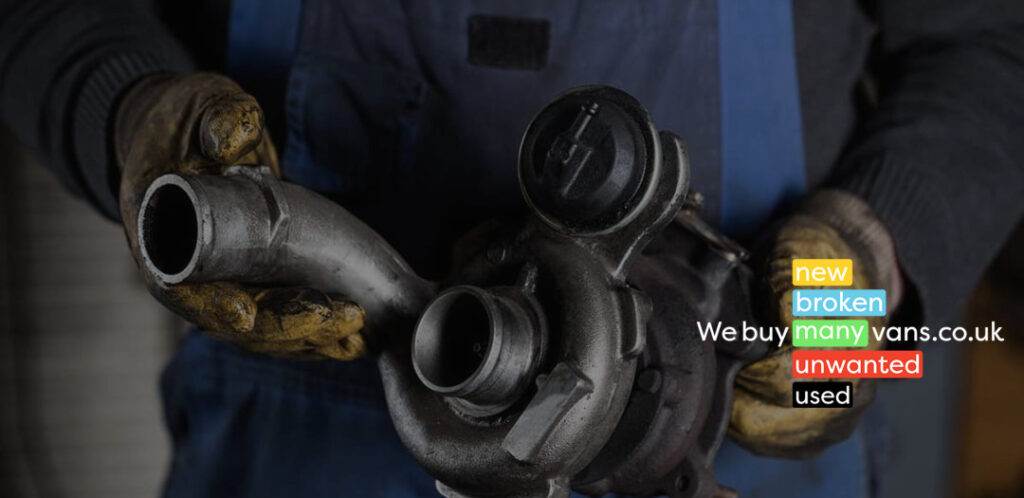
Regular checks are key to maintaining your turbo engine – make sure to regularly inspect the drivetrain and exhaust system, change the oil and air filter, and flush the coolant.
Don’t forget to check the spark plugs and inspect the turbocharger too.
Taking good care of your turbo engine is essential for keeping it running smoothly, so be sure to do these maintenance tasks regularly.
If your engine isn’t functioning properly, it might be time to sell your van to ‘We Buy Many Vans. They’ll take care of the details and make sure you get the best price out of the sale.
Sell Your Van In Three Easy Steps
Hassle-Free Selling Process
01.
Get a quote
02.
Schedule a pickup
03.
Get paid
Turbo Engine Repair Vs Replacement: Which Is Best?
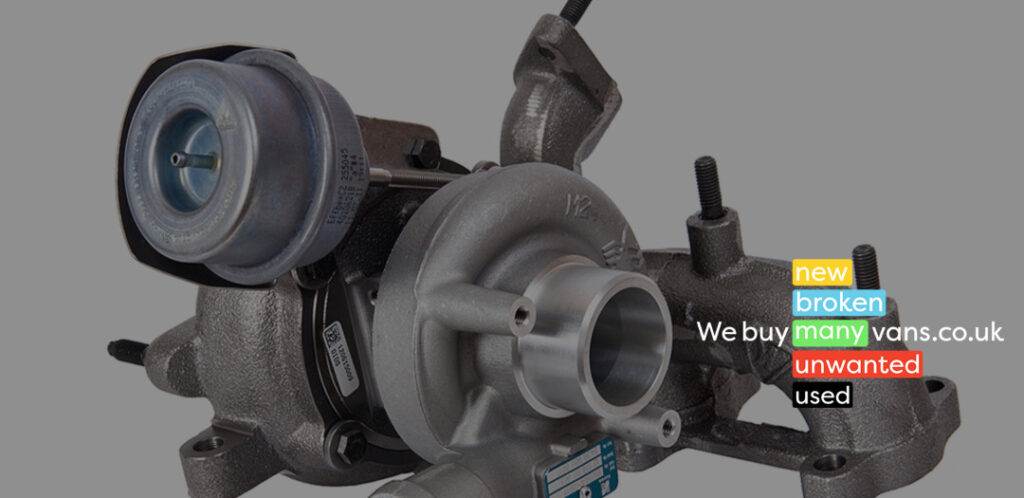
Turbo engines are known for their power and efficiency, but they can also present problems if not maintained properly. Turbo failure is one of the most common issues that van owners encounter.
Turbos are intricate machines with many moving parts, which means that they are susceptible to wear and tear over time. Symptoms of turbo faults may include a decrease in engine performance, excessive smoke from the exhaust, or loud whistling noises.
If a blown turbo is not addressed promptly, it can cause damage to other vital components of the engine.
For example, metal shavings from a failed turbo can circulate throughout the engine and cause blockages in oil lines or even damage to bearings.
To prevent such issues, it is important to diagnose turbo failure symptoms early on and seek professional turbo diagnostics as soon as possible.
When it comes to repairing or replacing a damaged turbo, there is no one-size-fits-all solution. In some cases, replacing the entire turbo assembly may be necessary.
However, depending on the extent of the damage and the age of the van, repairing the existing unit may be more cost-effective in the long run.
Ultimately, it is best to consult with a qualified mechanic who can provide expert advice on whether repair or replacement is the best course of action for your particular situation.
The Cost Of Fixing Turbo Engine Problems
When it comes to fixing turbo engine problems, parts replacement costs can be a big factor.
Labor costs can also add up quickly if you don’t have the skills to do it yourself. And don’t forget about the diagnostic fees that some mechanics may charge.
All of these costs can quickly add up, so it’s important to weigh your options when deciding whether to fix or sell your van to We buy many vans. So if you decide to go that route, give us a call. We’d be glad to offer a fair price for your vehicle.
Parts Replacement Costs
You’re driving along the highway, enjoying the smooth ride of your turbo engine. Suddenly, you hear a strange noise coming from under the hood. You pull over and take a look, only to find that your worst fears have come true – your turbocharger has failed.
This is not an uncommon occurrence for drivers with turbo engines, as the causes of turbo failure can range from inadequate lubrication to excessive heat buildup. The failure symptoms are usually obvious: decreased power output, increased smoke emissions, and unusual noises coming from the engine.
If you’ve experienced blown turbo or other turbocharger problems, you may be wondering about the cost of fixing them. Unfortunately, there’s no easy answer to this question. The cost will depend on a number of factors, including the quality of the turbo that needs to be replaced and how much damage has been done to your engine as a result of the malfunction.
In some cases, replacing a single part may be enough to get your engine running smoothly again. In others, you may need more extensive repairs or even a complete engine overhaul.
When it comes to parts replacement costs for turbo engine problems, it’s important to remember that quality matters. While it may be tempting to opt for cheaper replacement parts in order to save money upfront, doing so could end up costing you more in the long run if those parts fail prematurely or cause further engine malfunction down the line.
Dealing with blown turbos and other issues related to turbocharger failure can be frustrating. At We Buy Many Vans, we understand this and offer fair prices for vans with these problems. We buy any van, in any condition – even broken ones.
Labor Costs
So you’ve experienced turbo failure on your turbocharged engine and you’re wondering about the cost of fixing it. We’ve already discussed parts replacement costs, but another factor that can significantly impact the overall cost is labor.
Labor costs for turbo diagnostics and repairs can vary widely depending on the extent of the damage and the expertise of the mechanic performing the work. Some issues, such as a clogged exhaust or dirty air filter, may be relatively simple and quick to fix, resulting in lower labor costs.
However, more complex issues like a blown turbo or damaged engine components will require more time-intensive repairs, leading to higher labor costs.
It’s important to find a reputable mechanic who specializes in turbocharger repairs and understands the specific needs of your vehicle. This will help ensure that your repair is done correctly and efficiently, minimizing downtime and reducing the risk of further damage down the line.
Diagnostic Fees
So you’ve experienced turbo failure on your engine and want to know the cost of fixing it. We’ve already talked about parts replacement costs and labor costs, but another factor that can affect the overall expense is diagnostic fees.
The diagnostic process is critical in determining the root cause of your turbocharger problems, so it’s essential to understand what these fees entail. The cost of diagnosing turbocharger failure symptoms can vary depending on the extent of the damage and the quality of the turbo.
A blown turbo or other serious issues will require more time-intensive diagnostics, leading to higher fees. However, some mechanics may offer free or discounted turbo diagnostics if you choose them for repairs. It’s important to get your turbo checked as soon as possible to prevent further damage.
It’s crucial to find a reputable mechanic who specializes in diagnosing and repairing turbocharger issues. They should have experience working with different causes of turbo failure and be able to provide an accurate diagnosis and repair estimate.
How To Identify Turbo Engine Issues Before They Become Serious
Imagine you’re driving down the highway, and suddenly, your van’s engine power drops. You hear a loud whining noise, followed by smoke coming from the exhaust. You pull over to the side of the road, and your worst fears are confirmed – your turbocharger has failed.
Turbocharger problems are common in vans with turbo engines. Turbo dynamics can be complex, and there are many causes of turbo failure. One of the most common causes is oil starvation. When oil does not reach the turbos properly, it can cause overheating and eventually lead to failure.
Another issue is dirty or clogged air filters that restrict airflow to the turbos.
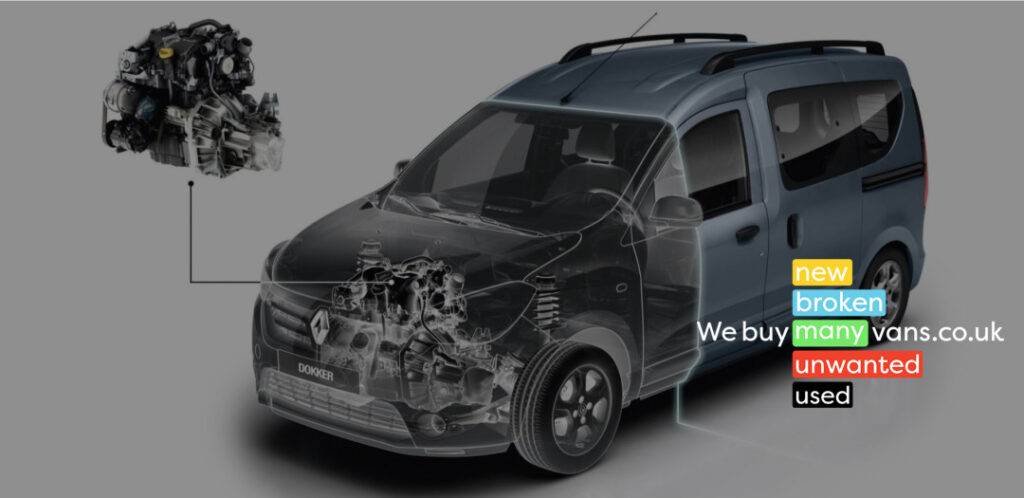
It’s essential to recognize the failure symptoms of a blown turbo before it becomes serious. Common signs include reduced engine power, black smoke from the exhaust, unusual noises like whining or grinding sounds, and a burning smell from under the hood. If you notice any of these symptoms, it’s best to get your van checked by a mechanic immediately.
Ignoring these issues will only lead to more costly repairs in the long run.
Van Troubleshooting Guide: Common Problems from Fuel Pumps to MOT Failures
Here’s the list of van problems in order from most common to least common:
- Fuel Pump Problems
- ECU Problems
- Fuel Injector Problems
- Turbo Engine Problems
- DPF Problems
- Wiring Loom Problems
- Oil Pressure Problems
- Differential Problems
- MOT Failure Vans
- Timing Chain Problems
- Engine Warning Light
- Gearbox Failure
Please note that the order may vary depending on various factors such as the specific van model, maintenance practices, and driving conditions. This list is a general representation of common van problems but may not reflect the exact frequency of occurrence in all cases.
Signs That Your Van's Turbocharger Is Failing
Now that you know how to identify turbo engine issues before they become serious, let’s talk about the signs that your van’s turbocharger is failing.
Feeling the power of a turbo engine is exhilarating, but when it starts to fail, it can be devastating. The signs of a failing turbocharger are not always obvious and can be costly if not addressed promptly. Understanding the symptoms of turbo failure will help you identify potential problems before they become major issues.
Loss of Engine Power: One of the most common symptoms of turbocharger problems is a loss of engine power. If you notice that your van is struggling to accelerate or maintain speed, it may be due to a blown turbo.
Smoke from Exhaust: Another symptom of turbo failure is smoke coming from the exhaust pipe. This could indicate that oil has leaked into the exhaust system due to a failed seal or bearing.
Loud Whining Noise: A loud whining noise coming from under the hood could also be an indicator of a failing turbocharger. This noise may increase in volume as you accelerate and can be caused by bearing failure.
Check Engine Light: Finally, if your van’s check engine light comes on, it could be related to your turbocharger. This warning light may indicate that there are issues with the turbo diagnostics or other underlying causes of turbo failure.
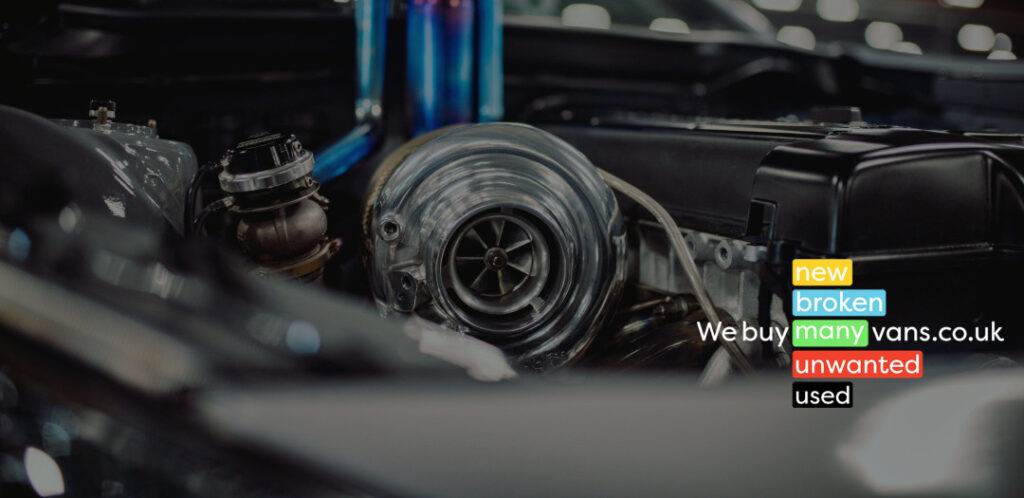
Ignoring these failure symptoms could lead to expensive repairs down the road.
Causes of turbo failure include poor maintenance, dirty air filters, and worn-out seals or bearings which ultimately lead to bearing failure.
If you suspect that your van’s turbocharger is failing, don’t wait until it’s too late! Take your vehicle to a trusted mechanic for diagnosis and repair as soon as possible. Remember that bearing failure will occur if left unchecked, which could cause irreparable damage to your engine and result in costly repairs or even complete engine replacement.
Don’t let a blown turbo bring you down – stay vigilant and pay attention to any warning signs your van may exhibit!
Turbo Engine Failure: What To Do Next
When it comes to turbo engine problems, one of the most common issues faced by vehicle owners is turbo failure. A blown turbo can cause a range of issues, from reduced engine power to complete engine failure. It’s important to understand the causes and symptoms of turbocharger problems so that you can take action before it’s too late.
There are several common causes of turbo problems, including oil starvation, foreign object damage, and excessive heat. When any of these occur, it can cause damage to the internal components of the turbo and lead to failure.
The symptoms of a failing turbo include reduced engine power, increased smoke from the exhaust, and unusual noises coming from the engine. If you notice any of these signs, it’s essential to get your vehicle checked out by a professional mechanic as soon as possible.

If your van has experienced a blown turbo or other related issues, it may be time to consider selling it. At We Buy Many Vans, we understand how frustrating and stressful it can be dealing with unexpected vehicle repairs. That’s why we offer a hassle-free solution for selling your van quickly and easily.
Whether your van is in perfect condition or has some underlying issues like turbo problems, we’re happy to make you an offer and take care of all the details for you.
By understanding the common causes and symptoms of turbo failure and knowing when it’s time to sell your van, you can take control of your situation and make informed decisions about what’s best for you and your vehicle.
Don’t let unexpected repairs bring you down – reach out to We Buy Many Vans today for a stress-free solution.
We Buy Many Vans: Our No-Nonsense Van Buying Service
Sell A Van With Turbo Engine Failure To We Buy Many Vans
So you’ve got a van with turbo failure symptoms and you’re wondering how to sell it? Look no further than We Buy Many Vans.
Our team of experts is well-versed in handling all kinds of engine malfunction, including blown turbos and other potential problems. We understand that the quality of the turbo can cause turbocharger problems, which is why we take special care in evaluating each vehicle that comes our way.
When it comes to selling a van with a blown turbo, many people may be hesitant to disclose this information upfront. However, at We Buy Many Vans, we encourage transparency and honesty in all transactions.
By letting us know about any engine malfunction or failure symptoms your vehicle may have, we can offer you a fair price that accurately reflects its true value.
It’s important to note that engine malfunction isn’t always caused by issues with the turbocharger alone. There could be other underlying problems that contribute to the failure symptoms you’re experiencing.
At We Buy Many Vans, our team of experts will conduct a thorough evaluation of your vehicle to determine the root cause of any turbocharger problems or overall engine malfunction. This allows us to offer you the best possible price for your van – one that takes into account its true condition and potential future repairs.
Turbo Engine Problems Frequently Asked Questions
Common turbo engine problems include oil leaks, turbo lag, turbo failure, boost pressure issues, and compressor or turbine wheel damage.
Turbo engine oil leaks can be caused by a variety of factors, including worn or damaged seals, faulty gaskets, or damage to the turbocharger itself. Poor engine maintenance, excessive engine wear, and high mileage can also contribute to oil leaks.
Turbo lag is the delay in acceleration that occurs when the turbocharger takes time to spool up and provide boost pressure to the engine. It can be fixed by upgrading the turbocharger, improving the engine’s exhaust system, or by installing an electronic boost controller.
Signs of turbo failure include decreased engine performance, smoke from the exhaust, excessive engine oil consumption, unusual noises from the turbocharger, and warning lights on the dashboard. If you notice any of these signs, it’s important to have your turbocharger inspected by a qualified mechanic.
Boost pressure issues can be diagnosed using a boost pressure gauge, which measures the amount of boost pressure being produced by the turbocharger. If the gauge shows low boost pressure, it could indicate a problem with the turbocharger, the wastegate, or the intercooler.
Compressor or turbine wheel damage in a turbo engine can be caused by foreign object ingestion, excessive heat, or excessive boost pressure. Poor engine maintenance, excessive engine wear, and high mileage can also contribute to compressor or turbine wheel damage.
Yes, we buy any van in any condition, including vans with turbo engine problems. Whether your van has a faulty turbocharger, engine damage, or any other issues, we will still consider buying it from you. Simply get in touch with us to receive a free valuation for your van.
Sell Your Van Today to We Buy Many Vans
Overall, it’s important to be aware of the potential issues that can arise with turbo engines. While they offer improved performance and fuel efficiency, they can also come with their own set of problems.
However, by properly maintaining your vehicle and addressing any issues as soon as they arise, you can prevent many common turbo engine problems.
If you do find yourself facing turbo engine issues, there are aftermarket solutions available to help improve performance and extend the lifespan of your turbocharger.
And if all else fails, don’t forget that you can always sell your van to We Buy Many Vans for a hassle-free experience. With our easy online valuation process and fast payment options, we make it simple to get rid of your old van and move on to something better.